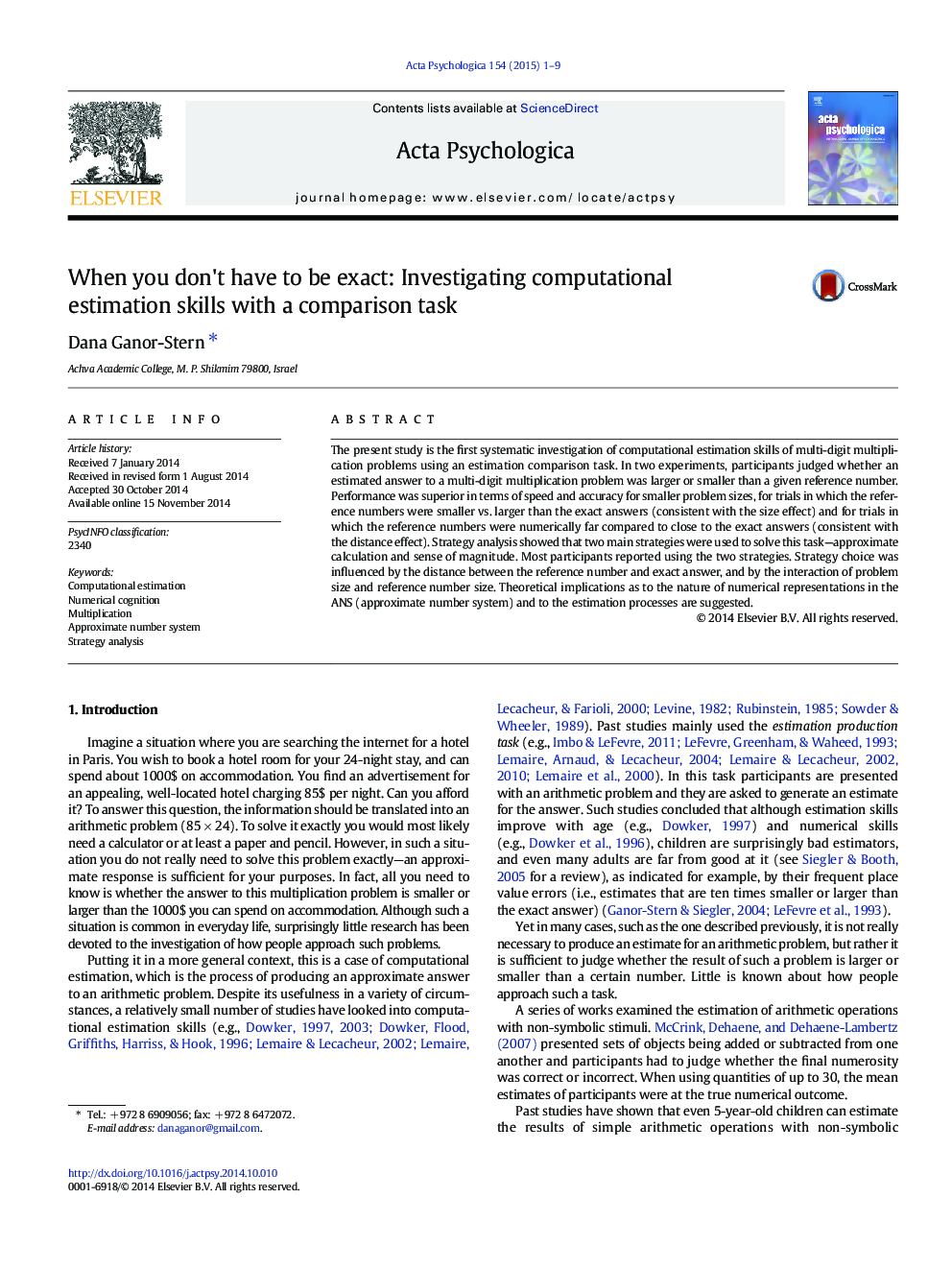| Article ID | Journal | Published Year | Pages | File Type |
|---|---|---|---|---|
| 919747 | Acta Psychologica | 2015 | 9 Pages |
•Estimation skills of multi-digit multiplication were examined using a comparison task.•Participants indicated if exact answer was larger/smaller than a reference number.•Performance was better when the reference number was small and far from the exact answer.•Participants used both intuitive-holistic and algorithmic-analytical strategies.•Strategy choice was adaptive as it was affected by problem characteristics.
The present study is the first systematic investigation of computational estimation skills of multi-digit multiplication problems using an estimation comparison task. In two experiments, participants judged whether an estimated answer to a multi-digit multiplication problem was larger or smaller than a given reference number. Performance was superior in terms of speed and accuracy for smaller problem sizes, for trials in which the reference numbers were smaller vs. larger than the exact answers (consistent with the size effect) and for trials in which the reference numbers were numerically far compared to close to the exact answers (consistent with the distance effect). Strategy analysis showed that two main strategies were used to solve this task—approximate calculation and sense of magnitude. Most participants reported using the two strategies. Strategy choice was influenced by the distance between the reference number and exact answer, and by the interaction of problem size and reference number size. Theoretical implications as to the nature of numerical representations in the ANS (approximate number system) and to the estimation processes are suggested.
